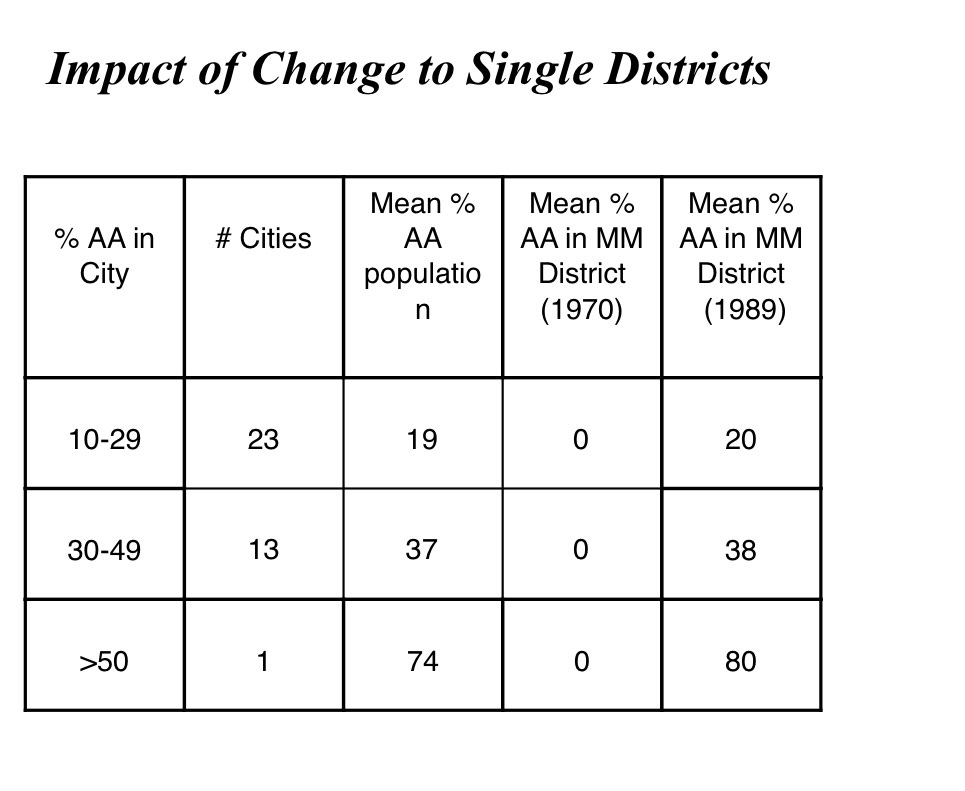June 8, 2023: A one-two punch on behalf of democracy and the rule of law.
I’ll let others discuss the desperately needed accountability for a law-breaking former president.
But it’s also important to remember that the state-level of attack on democracy (ie. where most of the damage is being done) would continue even if Donald Trump were locked up tomorrow. And that’s why the other big news from yesterday—the surprising Supreme Court decision in an Alabama gerrymandering case—is so important in the long run.
My long-time readers will remember that I dedicated one of my first newsletters to this case, called Allen v. Milligan. For a full discussion of how the Court, over several decades, developed robust standards to avoid the use of racially motivated gerrymandering to weaken fair representation of communities of color, you can read the full newsletter here.
But here are the key points.
The Supreme Court established a framework within Section 2 of the Voting Rights Act which provided a key protection (really, the only protection) against gerrymandering. And against the type of discrimination that would otherwise deprive majority-minority communities of representation at the state and federal level. This has been the approach for decades. That line of cases revolutionized America’s representative democracy. This simple graph demonstrates just how dramatic that change was:
In 2021, numerous states engaged in the very splitting of majority-minority communities into different districts that this long-time approach outlawed. Ron DeSantis eliminated several majority-minority Florida districts at the last moment. In Tennessee, the GOP legislature split Nashville three ways. And so on.
In three cases—Louisiana, Georgia and Alabama—federal district courts (including Trump appointees) applied the Court’s clear precedent to find that the new maps violated Section 2 of the VRA. The courts in each case ordered new maps for 2022, adding the required majority-minority districts in each state. (Other states still have cases pending).
But then the US Supreme Court stepped in. In all three cases, the Court froze the ruling below, allowing the maps that had been struck down to be used in this year’s election. That’s right, the new House majority includes districts that lower courts held were in violation of the Voting Rights Act.
At the same time, the Court also took up Alabama’s appeal, which was argued the first week of October. And here is where the case grew so dangerous. Alabama’s prime arguments to defend an egregious split of Alabama’s black electorate would have gutted the long-time Section 2 approach that revolutionized representation in this country. Going forward, community after community would be subject to the same type of gerrymandering seen in 2021 with no recourse via the VRA. The result [would] be less representation of majority-minority communities across the country, which also stacks the deck more in favor of the GOP in statehouses and Congress.
That takes us to yesterday.
Most observers predicted that the Court’s conservative majority, consistent with a series of decisions gutting other aspects of the Voting Rights Act, was poised to side with Alabama here. I feared the same. And although it’s always risky to try to predict outcomes from oral arguments, the questioning from the Justices did nothing to allay the concerns that the VRA was about to be neutered again.
So the 5-4 decision rebuffing Alabama’s argument, and holding firm to the long-time approach to these cases, came as a surprising and momentous victory. It doesn’t only mean the short-term unrigging of those outrageous districts in Alabama, Georgia, Louisiana and perhaps other states, which has a significant impact on coming election cycles for the House of Representatives, including the House majority.
But in the long run, if Alabama had won, it would’ve given the green light to even more aggressive gerrymandering, driven by the cynical splitting of communities of color across the country. And this would’ve occurred in far more states than the ones that crossed the line in 2021.
So the sole federal brake on gerrymandering remains in place. Yes, all sorts of egregious partisan gerrymandering can continue despite this case (we need to fight that in other ways), but the door that would’ve been opened here has been slammed shut.
And that makes yesterday a great day for democracy.
(Of course, the Moore v. Harper decision is yet to come. It’s an equally rogue and nonsensical argument as Alabama’s was in this case, and at least as dangerous to democracy. We can only hope it suffers the same fate. Stay tuned.)
In the meantime, stay on offense!






Analysis: Yesterday’s Big Win for Democracy